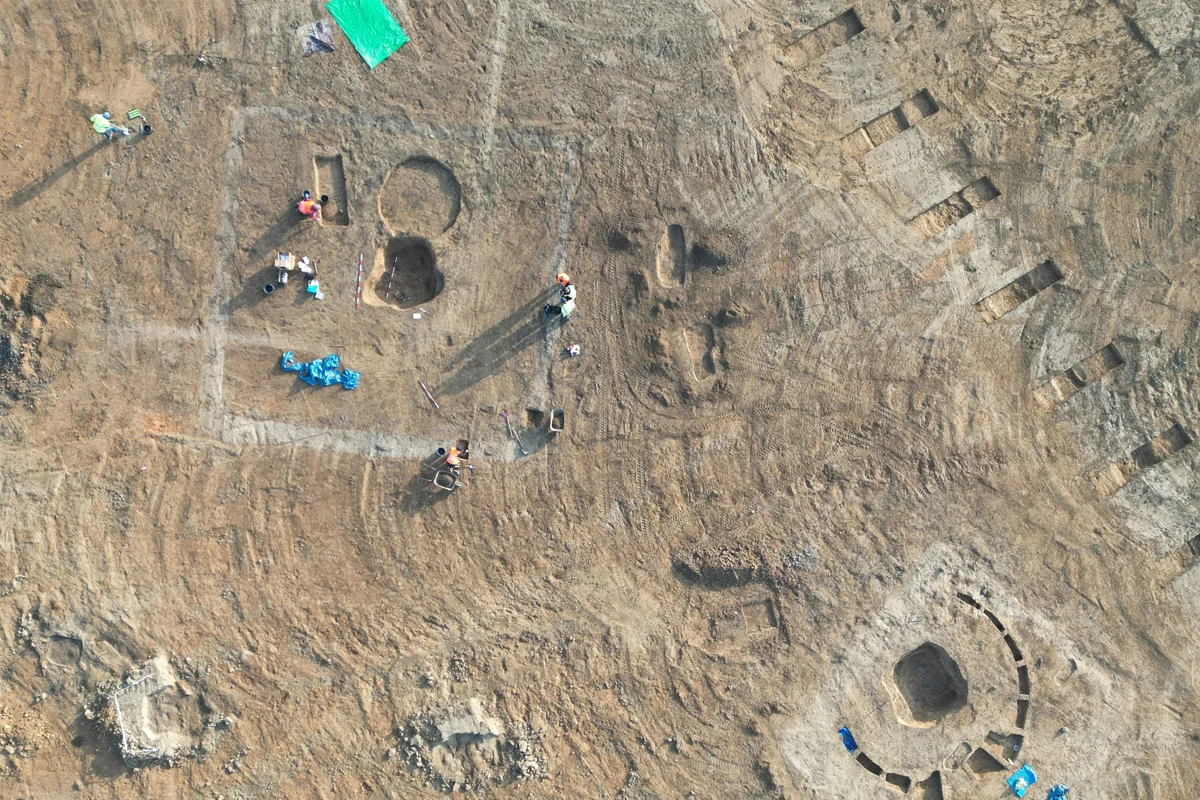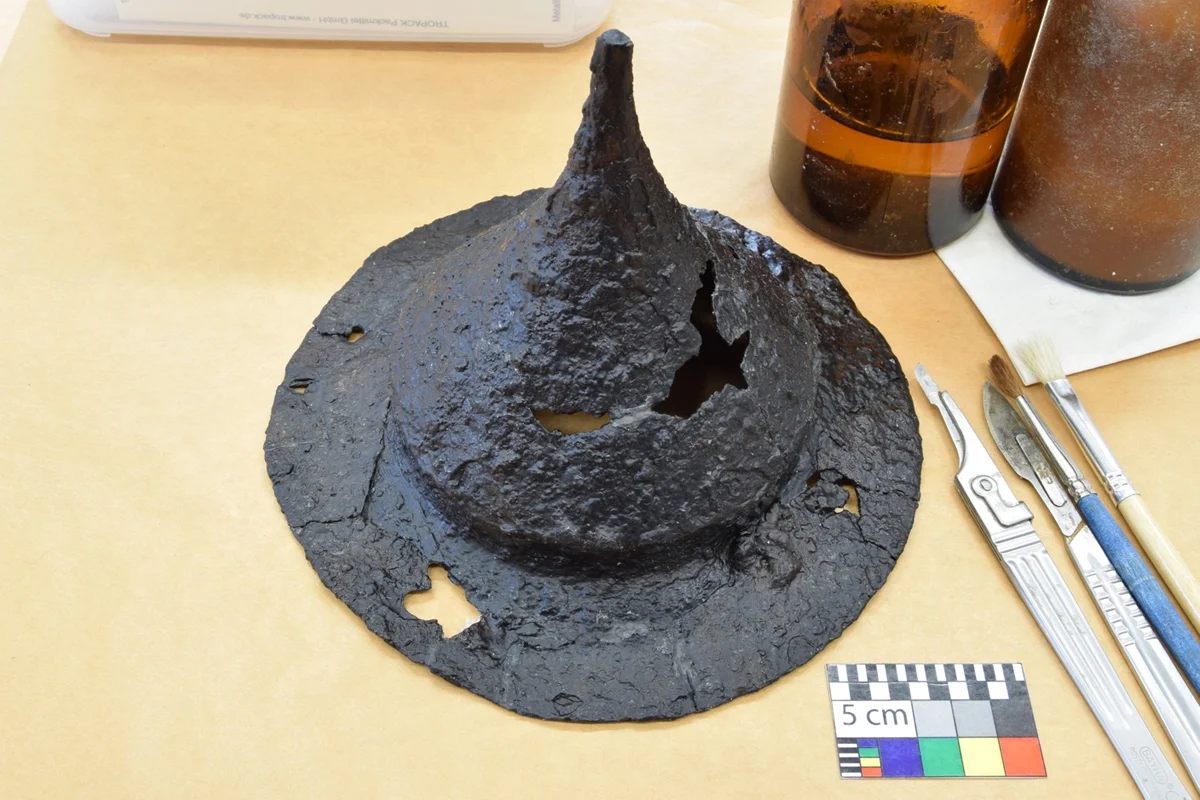Archaeologists from the Olomouc Archaeological Centre have discovered two major Bronze Age cemeteries, including the largest known burial ground of the Nitra culture in the Czech Republic.
Both cemeteries were uncovered in Central Moravia along the planned route of the D35 highway, near Křelov and Neředín, close to Olomouc.
The larger of the two sites, dating back to the Early Bronze Age (2100–1800 BC), contains more than 130 burials attributed to the Nitra culture. Excavations have uncovered skeletal remains alongside funerary objects, including copper ornaments, bone beads, stone arrowheads, copper rings, bone awls, and a distinctive copper bracelet shaped like a willow leaf.
Some of the burials also show evidence of post-mortem body manipulation, suggesting burial rites that continued long after death. “These findings indicate that rites of passage included moving the body within the grave as part of the ritual,” said lead archaeologist Vendula Vránová.

The second cemetery contains evidence of four distinct burial periods spanning over 3,000 years, from the Late Stone Age to the 9th century AD under the Great Moravian Empire.
Archaeologists uncovered 17 skeletal graves from the Corded Ware culture (2600 BC), four of which were surrounded by circular grooves, likely remnants of wooden structures.
One of the most significant burials from this site is the grave of a Germanic warrior from the 3rd century AD. He was found buried with a shield boss and iron spear—marking the first such discovery in Central Moravia.
Rescue excavations took place from August 2023 to April 2024. “Our work in the field is over, but now the most important part awaits us – detailed analysis and interpretation of the findings,” concludes Vránová.
Header Image Credit : Olomouc Archaeological Centre
Sources : Olomouc Archaeological Centre





